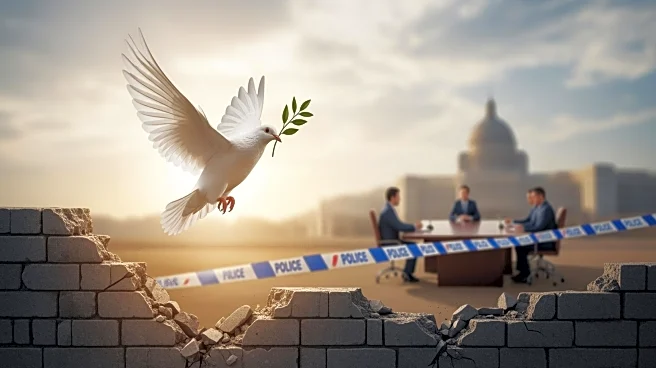What's Happening?
Humanitarian aid has begun reaching Gaza following a ceasefire between Israel and Hamas. The United Nations reports that cooking gas entered Gaza for the first time in seven months, and aid workers are now able to move more freely. Nutrition clinics and bakeries
are reopening, and looting of supplies has decreased. However, challenges remain due to restrictions imposed by Israeli authorities on international aid groups. The ceasefire agreement allows for an average of 600 trucks of aid to enter Gaza daily, but it is uncertain if this volume will be sustained. The Rafah crossing between Egypt and Gaza remains closed, delaying medical evacuations and travel. Despite these challenges, aid organizations like the World Food Program and UNICEF are scaling up their efforts to provide essential supplies to the displaced population.
Why It's Important?
The delivery of aid to Gaza is crucial for addressing the humanitarian crisis affecting nearly 2 million displaced individuals. The ceasefire has allowed for increased aid flow, but the situation remains precarious due to ongoing restrictions and logistical challenges. The ability to sustain and increase aid delivery is vital for preventing famine and providing necessary medical and shelter supplies as winter approaches. The international community, including organizations like the World Food Program and UNICEF, plays a critical role in supporting Gaza's population, but their efforts are hindered by political and logistical barriers. The outcome of these efforts will significantly impact the region's stability and humanitarian conditions.
What's Next?
The continuation of aid delivery depends on the stability of the ceasefire and the resolution of disputes between Israel and Hamas. The reopening of the Rafah crossing and other border points is essential for facilitating the movement of aid and people. International organizations are likely to continue advocating for increased access and support to meet the urgent needs of Gaza's population. The situation requires ongoing diplomatic efforts to ensure that humanitarian principles are upheld and that aid reaches those in need without further delay.















